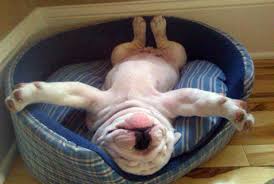
Older adults need about the same amount of sleep as young adults-7 to 9 hours each night. But seniors tend to go to sleep earlier and get up earlier than when they were younger. Older people may nap more during the day, which can sometimes make it hard to fall asleep at night.
There are two kinds of sleep-REM (rapid eye movement) sleep and non-REM sleep. We dream mostly during REM sleep and have the deepest sleep during non-REM sleep. As people get older, they spend less time in deep sleep, which may be why older people are often light sleepers.
There are many reasons why older people may not get enough sleep at night. Feeling sick or being in pain can make it hard to sleep. Napping during the day can disrupt sleep at night. Some medicines can keep you awake.
Being older doesn’t mean you have to feel tired all the time. There are many things you can do to help you get a good night’s sleep. Here are some ideas:
Follow a regular sleep schedule. Go to sleep and get up at the same time each day, even on weekends.
Try to avoid napping in the late afternoon or evening, as it may keep you awake at night.
Develop a bedtime routine. Take time to relax before bedtime each night. Some people watch television, read a book, listen to soothing music, or soak in a warm bath.
Keep your bedroom dark, not too hot or too cold, and as quiet as possible. If you struggle to get your room to the right temperature, that a look at this review on the best portable air conditioner as it will allow you to sleep better.
Have a comfortable mattress, a pillow you like, and enough blankets for the season.
Exercise at regular times each day but not within 3 hours of your bedtime.
Make an effort to get outside in the sunlight each day.
Be careful about when and how much you eat. Large meals close to bedtime may keep you awake, but a light snack in the evening can help you get a good night’s sleep.
Stay away from caffeine late in the day. Caffeine (found in coffee, tea, soda, and hot chocolate) can keep you awake.
Drink fewer beverages in the evening. Waking up to go to the bathroom and turning on a bright light break up your sleep.
Alcohol won’t help you sleep. Even small amounts make it harder to stay asleep.
Use your bedroom only for sleeping. After turning off the light, give yourself about 20 minutes to fall asleep. If you’re still awake and not drowsy, get out of bed. When you feel sleepy, go back to bed. Other people find that relaxing their body puts them to sleep. You might start by telling yourself that your toes feel light as feathers and then work your way up the rest of the body saying the same words. You may drift off to sleep before getting to the top of your head.
If you feel tired and unable to do your activities for more than 2 or 3 weeks, you may have a sleep problem. Talk to your doctor about changes you can make to get a better night’s sleep.
